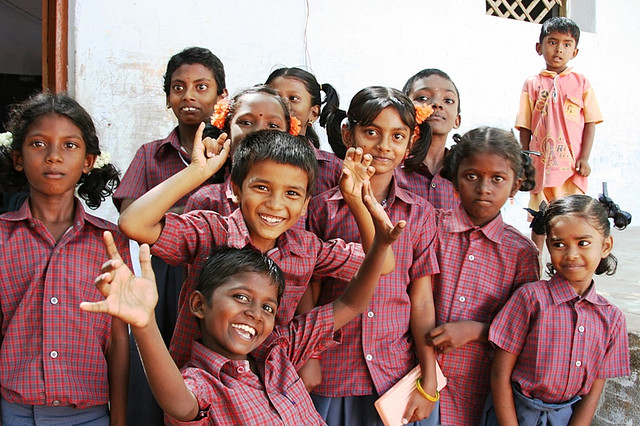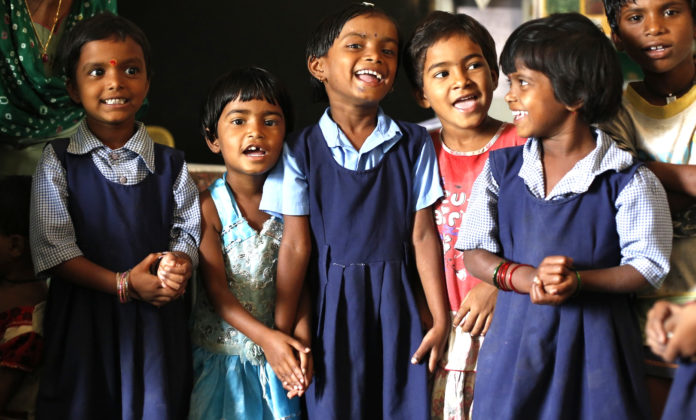As Atishi Marlena, advisor to education minister faces the axe, Medibulletin looks at a radical reform she anchored
Not every country judges itself by Gross National Happiness, like Bhutan does, instead of a Gross Domestic Product. But, the search for happiness is a universal human endeavour even though many have said it is a state of mind rather than a quest. In the words of American writer Elbert Hubbard, “Happiness is a habit -cultivate it!”

That is why, even as one of the people responsible for the decision, Atishi Marlena faces the axe, Delhi government’s decision to introduce a Happiness Curriculum in its schools is a progressive step. It could potentially be a game changer in an academic scenario where stress makes more headlines than learning outcomes. The curriculum will be taught to kids from nursery to Class VIII. A team of experts, including school teachers and principals have been brought together, to prepare a framework for the happiness curriculum. There will be no examinations but there will be a periodic assessment of children’s progress through a happiness index.
The motive behind the launch of Happiness Curriculum is to educate and generate awareness that the purpose of education is not to put relentless pressure on students to get good marks. The real goal is to create an environment where a student is happy, confident, with an enhanced sense of well-being can realise his or her true potential.

A curriculum designed for happiness should identify best practices, conceptual ideas, and coaching. The provision for giving and receiving feedback based on student experience and understanding is crucial for something as ahead of its times as this. Delhi education minister Manish Sisodia has pulled off quite a stunning feat in just announcing this, if it is implemented well, Sisodia could may well have ensured that he leaves a legacy, less than a decade into his political foray.
Some basic concepts like positive emotions, healthy relationships, gratitude, acceptance and acknowledgement may be incorporated in the curriculum to make it well-rounded. Activity based learning and practical techniques to cultivate a habit of happiness are also crucial. The curriculum should be aimed at creating an understanding of what happiness feels like, identification and awareness of the positive mood state and ultimately generalising it in day to day activities.
Recognising the importance of children and young people’s well-being and providing opportunities to develop a positive sense of self, is a stepping stone to the pursuit of happiness for the nation as a whole. In today’s day and age, success is associated with stress, that it is inevitable and even necessary to attain success in the world. It seems very relevant to classroom culture today.

Although, some amount of stress is helpful (Eustress), but when stress is chronic, it takes a toll on both physical and mental health. In view of the current scenario on how the millennials are growing up to become the most stressed-out generation, it poses a threat to the school and college-going generation. Students face a lot of issues on a daily basis, be it exam pressure, peer pressure, depression, or psychological factors. There is a need to inculcate an environment where students not only learn academically, but focus on their all-round development.
Recent studies show that schools teaching happiness skills outperform the schools teaching a more standard health curriculum, so focusing on well-being is a plus when it comes to core education. Happiness as a combination of positive emotions, well-being and meaningfulness contributes greatly to a child’s learning process. Various educational systems around the world have recognised the importance of a positive curriculum focussing on the well-being of children.
Ministry of Education in Singapore that is working extremely hard to ensure that their current curriculum includes recent positive psychology discoveries around mindset, resilience and grit. Several schools in Singapore aim to become a beacon of positive education in Asia, with its commitment to the Bounce Back programme which is a positive education approach to wellbeing, resilience and social-emotional learning for primary school children. It embeds positive psychology interventions into the daily life of pupils. Japan, on the other hand, having identified the level of stress among school children, is now embracing resilience as the primary intervention.
In a developing country like India, where there is an increasing amount of competition as horizons widen the stressors associated with such competition are on the rise. In the 2017 World Happiness Report, India ranks at 122 out of 155 countries evaluated. The report raises a red flag situation and calls for attention.
In this backdrop, Delhi government may just have come out with a winner.



Happiness curriculum is a necessary element that needs to be assimilated with the growing depression among students. We totally liked the way it has thrown light over this subject. To help implement this curriculum among schools, Young Angels delivers Empowering Life Skills magazine, which aims to reduce stress and depression in students by keeping them engaged in a creative set of activities. Check out the link (http://www.youngangels.in) to get one.
I agree with the above comment. Happiness among people is what governments should strive for. But sadly we are more focussed on vote bank politics. A very insightful article indeed
Avery encouraging initiative by Delhi Government. This will go a long way in nurturing students and taking out the unnecessary pressure from their lives. As such in this fast paced life there are too many pressures on the parents as well as students.